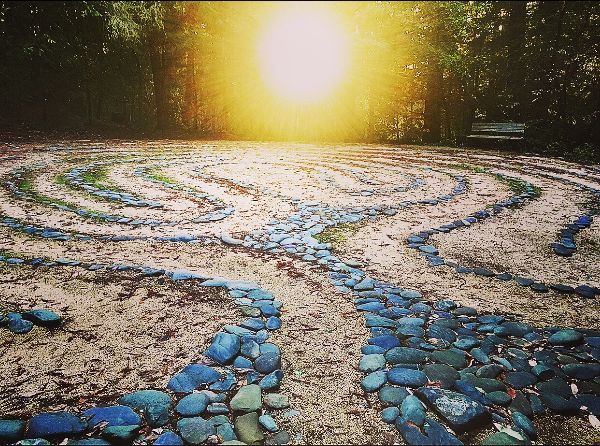The following is part of an ongoing dialogue with the feelings and questions of our time. This month, our Student Liaison Kara London reflects on the hardships and triumphs of the last year, and reminds us of our inherent capacities for resilience.
How do we maintain a sense of resilience in the face of oppression, violence, environmental degradation and losses, and the myriad of systemic issues that are sown into our here-and-now existence? This is a question I have had to ask myself a lot this last year, and that I imagine many of you are asking now, as we enter a new year. The New Year marks a time for reflection. It can be a time for us to look back and take stock of everything that has come to pass, and to form intentions for the new. We might think of the hardships and losses that we have sustained, as well as good fortune and abundance, on both personal and collective levels.
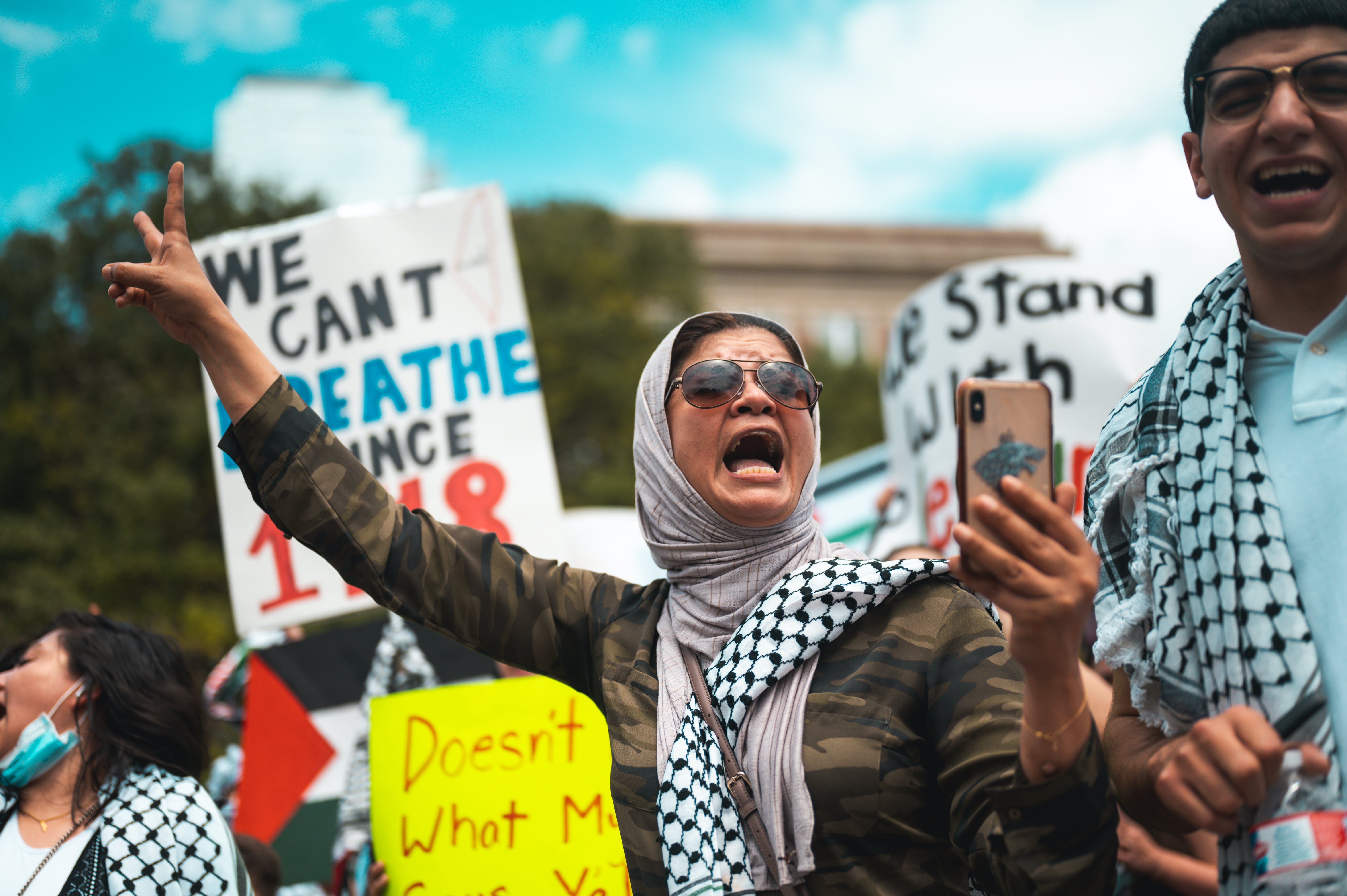 For me, for our Earthbody community, and as a world community, we have had to reckon with the ceaseless news of war in Ukraine and Palestine– the terrible deaths and bloodshed, the human rights abuses, and the stretching of settler-colonialist incursion. We have also had to grapple with how to face and respond to the outrageous denial of civil rights and of basic human needs – for equity, for voting rights, for safety, for refuge, for reproductive health.
For me, for our Earthbody community, and as a world community, we have had to reckon with the ceaseless news of war in Ukraine and Palestine– the terrible deaths and bloodshed, the human rights abuses, and the stretching of settler-colonialist incursion. We have also had to grapple with how to face and respond to the outrageous denial of civil rights and of basic human needs – for equity, for voting rights, for safety, for refuge, for reproductive health.
 We have had to cope with the largely ineffectual resolutions made at COP28, all while our hearts break for the lives of the chicks of the Emperor Penguins. If I sit too long and let these things sink in, my eyes well with tears and I feel awash with emotion.
We have had to cope with the largely ineffectual resolutions made at COP28, all while our hearts break for the lives of the chicks of the Emperor Penguins. If I sit too long and let these things sink in, my eyes well with tears and I feel awash with emotion.
And yet, knowing that your eyes may well with the same tears, and your heart may beat with the same outrage and confusion, I feel less alone. That I feel these things, that my heart breaks, lets me know the depths of my love for this world, and that I am still alive.
Despite the grim realities of this last year, in patches and corners of the world, love’s light shined, and the lifting up of people and planet grew.
 The dam removal process on the Klamath River in Northern California has begun, after a hard fought battle by the Yurok tribes and their allies to restore this precious ecosystem. As Amazon Watch reported there was a “historic vote in Ecuador to keep oil in the ground in the Yasuní National Park, as well as the ongoing and critical fight to preserve Indigenous land rights in Brazil by defeating “Marco Temporal” and expanding the demarcation of Indigenous lands.” In Montana, a group of 16 teens and youth won a case asserting that their rights to a clean and healthful environment had been violated by the state’s environmental policies, setting a precedent for future climate change related litigation and policy making. – It is notable that these wins have been spearheaded by youth and indigenous people.
The dam removal process on the Klamath River in Northern California has begun, after a hard fought battle by the Yurok tribes and their allies to restore this precious ecosystem. As Amazon Watch reported there was a “historic vote in Ecuador to keep oil in the ground in the Yasuní National Park, as well as the ongoing and critical fight to preserve Indigenous land rights in Brazil by defeating “Marco Temporal” and expanding the demarcation of Indigenous lands.” In Montana, a group of 16 teens and youth won a case asserting that their rights to a clean and healthful environment had been violated by the state’s environmental policies, setting a precedent for future climate change related litigation and policy making. – It is notable that these wins have been spearheaded by youth and indigenous people.
As I think of my original question around maintaining resilience, it helps to remind myself of these stories of human kindness and, as Adrienne Maree Brown said, of those who “return fertility to the soil around us.” (from All We Can Save).
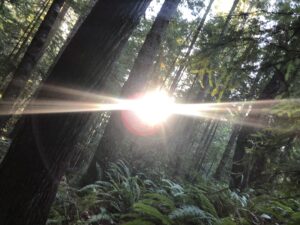 In times of great distress, it has also been a salve to reflect on Joanna Macy’s story of the Shambhala Warrior Prophecy. From this story comes the reminder that we each are descended from a lineage of survivors, of those with the courage to “dismantle the weapons of destruction…to go into the corridors of power where the decisions are made.” That the weapons we face are made by the human mind, and therefore can be un-made through the efforts of the human mind. That the tools to dismantle the forces enabling oppression, violence, and environmental destruction, reside in the human heart. These tools are compassion and an understanding of our radical interdependence – helping us to remain steady as we face the pain of the world and reminding us of our place in the web of life.
In times of great distress, it has also been a salve to reflect on Joanna Macy’s story of the Shambhala Warrior Prophecy. From this story comes the reminder that we each are descended from a lineage of survivors, of those with the courage to “dismantle the weapons of destruction…to go into the corridors of power where the decisions are made.” That the weapons we face are made by the human mind, and therefore can be un-made through the efforts of the human mind. That the tools to dismantle the forces enabling oppression, violence, and environmental destruction, reside in the human heart. These tools are compassion and an understanding of our radical interdependence – helping us to remain steady as we face the pain of the world and reminding us of our place in the web of life.
May these reminders bring you some comfort now and as you navigate the beginning of this new year. May you find sources of compassion within and around you and remember your precious place in the interconnected web of life.
Sending the curiosity and intelligence of Earth’s innumerable creatures and systems,
Kara, Ariana, and The Earthbody Team
NATURE PRACTICE
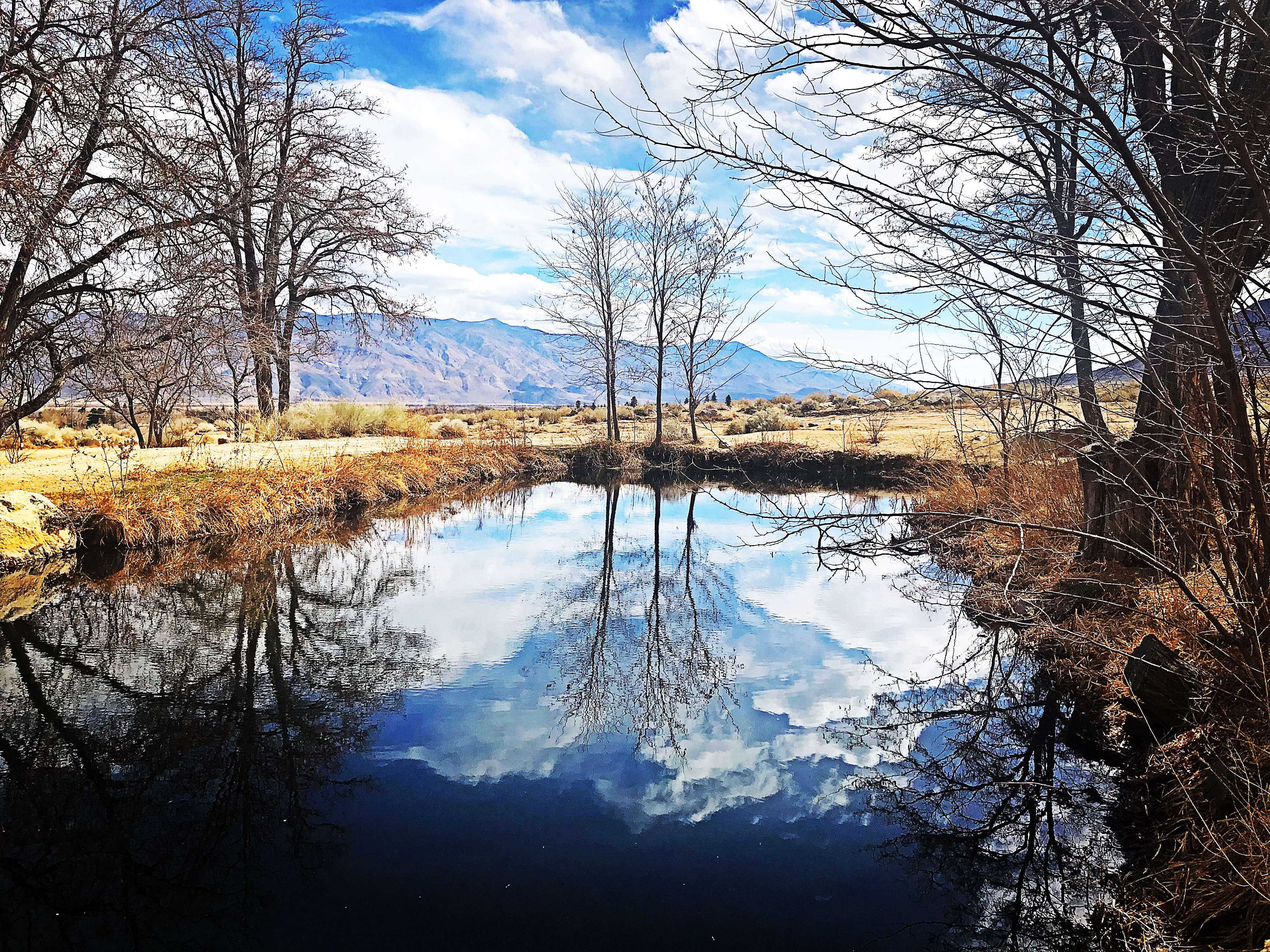
Nature Senses Walk
When my body is craving an immersion with outer nature, but time is limited, I go for a nature senses walk. It involves tuning in with non-judgmental attention to the world around me, while engaging with all the senses. This practice can help to deepen nature connection and bring about feelings of calm, stillness, and even joy in a relatively brief format. It can be done in whatever outdoor space is accessible to you, whether urban, suburban, or rural.
Experiential prompts are listed in no particular order, and personally I like to play with orienting to the different senses as they arise around me.
Guidance
Notice light and shadow,
the hue of the sky,
hone in on yellow leaves speckled brown
Feel warm sun at your back,
cool chill on your cheeks,
the stillness or movement of air
Sense the mixture of scent and taste,
warm dirt, rain on asphalt,
a neighbor’s laundry
Listen as each sound comes and goes,
barking dog, rustling leaves,
Wren’s quick chatter
Find where inner and outer body meet,
ground pressing feet,
bone and muscle in unison
HOPEFUL ACTIVISM AND NEWS
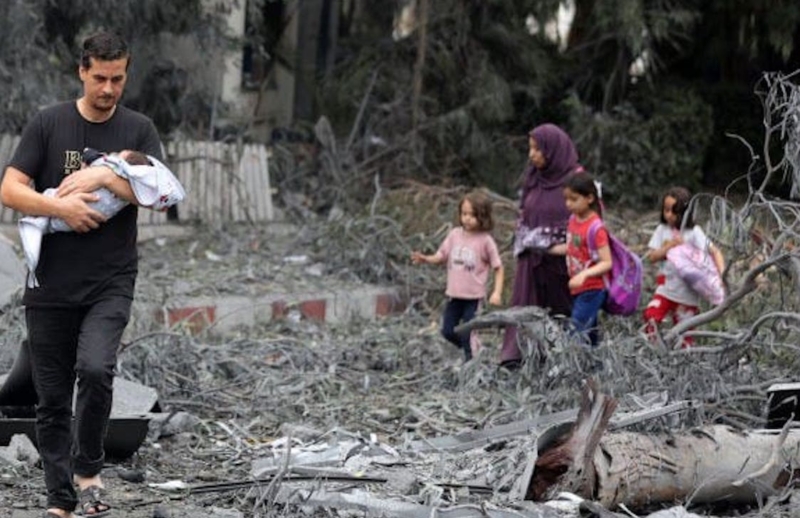
everywhere. Thus we must speak out about the on-going situation in Palestine and Israel.
We honor the hurt, confusion, anger and fear that so many people are feeling right now. We join those in deep mourning at the tragic and unnecessary loss of lives on all sides. We are all impacted in our hearts and bodies, regardless of our relationship to events on the ground in Gaza and Israel, or our different positionalities to this issue.
Nevertheless, people (mostly women and children), are being killed daily by bombs, and the ensuing illness and starvation daily in Gaza. We stand with them, and against this indiscriminate violence.
If you are moved by this humanitarian crisis, please consider donating or taking actions with the resources below:
Here are two long standing emergency food, supply and activism organizations that we trust:
MECA TEAM AND PARTNERS: Amidst the ongoing attack on Gaza, MECA team and partners are providing emergency assistance to families who have fled their homes to seek shelter with relatives as well as procuring emergency medical supplies for hospitals and clinics.
MECA for Peace
UNITED NATIONS RELIEF AND WORKS AGENCY: UNRWA is providing emergency food assistance, emergency cash assistance for and emergency preparedness and response efforts, including health teams, and mental health and psychosocial support for UNRWA school children.
UNRWA Emergency Appeal
USPCR PUBLIC ACTION TOOLKIT: Here is a tool kit for writing emails, calling senators and representatives and other actions. This only takes 5 minutes to call each of them and less for an email.
The USPCR Public Action Toolkit
POETRY AND INSPIRATION
In honor of the history of genocide of indigenous peoples all over the world and of the current genocide of the Palestinian people, we offer words from Palestinian poets as they speak of love and death.
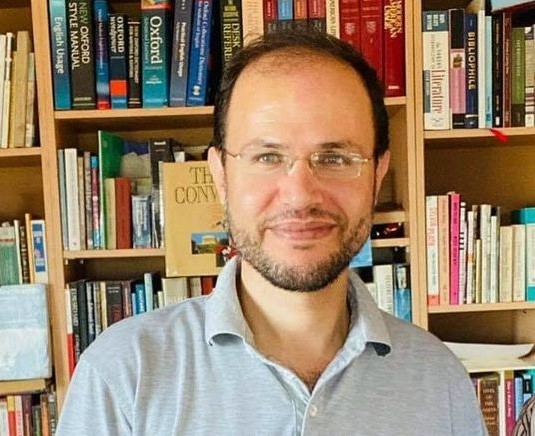
If I Must Die by Refaat Alareer
If I must die,
you must live
to tell my story
to sell my things
to buy a piece of cloth
and some strings,
(make it white with a long tail)
so that a child, somewhere in Gaza
while looking heaven in the eye
awaiting his dad who left in a blaze–
and bid no one farewell
not even to his flesh
not even to himself–
sees the kite, my kite you made, flying up above
and thinks for a moment an angel is there
bringing back love
If I must die
let it bring hope
let it be a tale
Like hundreds of other poets, writers, journalists,
and artists, professor and poet Refaat Alareer
was murdered in an Israeli-U.S. air strike, along
with his sister, her four children, and his brother.
Scholar, poet, activist, writer, teacher, mentor,
brother, son, father. This poem has circulated
widely and been translated into dozens of languages.
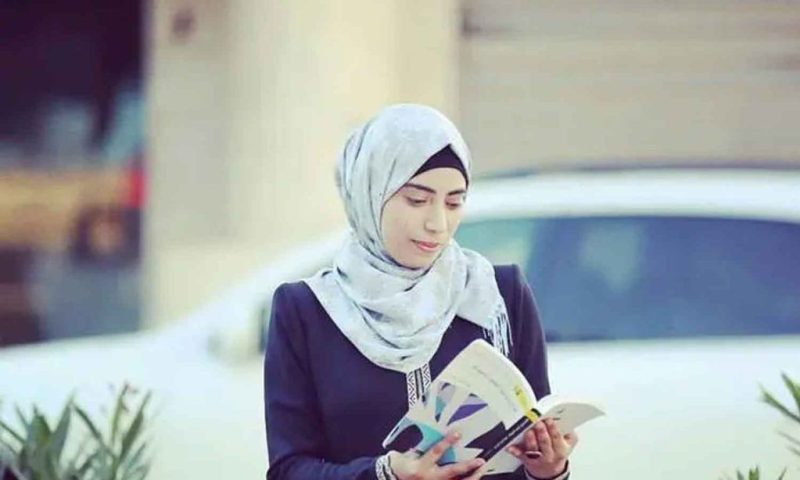
Not Just Passing
by Hiba Abu Nada
Translated from Arabic by Huda Fakhreddine
Yesterday, a star said
to the little light in my heart,
We are not just transients
passing.
Do not die. Beneath this glow
some wanderers go on
walking.
You were first created out of love,
so carry nothing but love
to those who are trembling.
One day, all gardens sprouted
from our names, from what remained
of hearts yearning.
And since it came of age, this ancient language
has taught us how to heal others
with our longing,
how to be a heavenly scent
to relax their tightening lungs: a welcome sigh,
a gasp of oxygen.
Softly, we pass over wounds,
like purposeful gauze, a hint of relief,
an aspirin.
O little light in me, don’t die,
even if all the galaxies of the world
close in.
O little light in me, say:
Enter my heart in peace.
All of you, come in!
Novelist, poet, educator, and mother Heba Abu Nada, a beloved figure in the Palestinian literary community and the author of Oxygen is Not for the Dead, was killed by an Israeli-U.S. airstrike October 20. She had degrees in biochemistry and nutrition. She was thirty-two years old. In her final Facebook post, published on October 8, she wrote: “Gaza’s night is dark apart from the glow of rockets, quiet apart from the sound of the bombs, terrifying apart from the comfort of prayer, black apart from the light of the martyrs. Good night, Gaza.” Learn more about Hiba HERE, along with her reading a poem in Arabic.
Thank you for reading! We welcome your comments and questions. Contact EBI: earthbodyinstitute@gmail.com.
We acknowledge that The Earthbody Institute is located in Huchiun, in unceded Lisjan territory, now known as Oakland. We honor and support the ancestors and present Lisjan people. We encourage you to learn more and make a donation to support the return of their land and culture.

